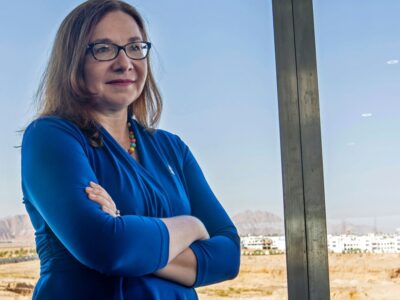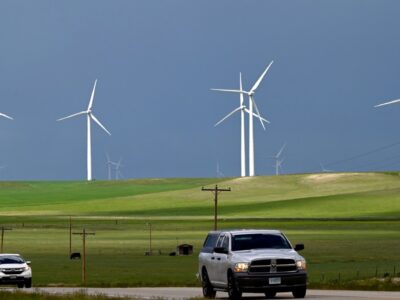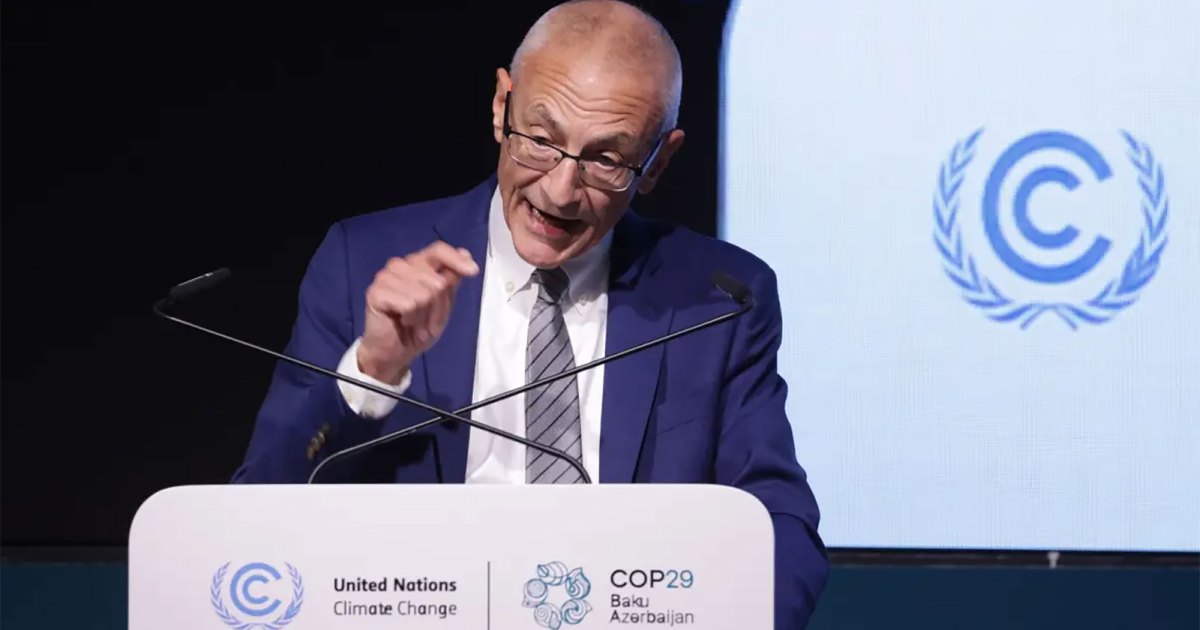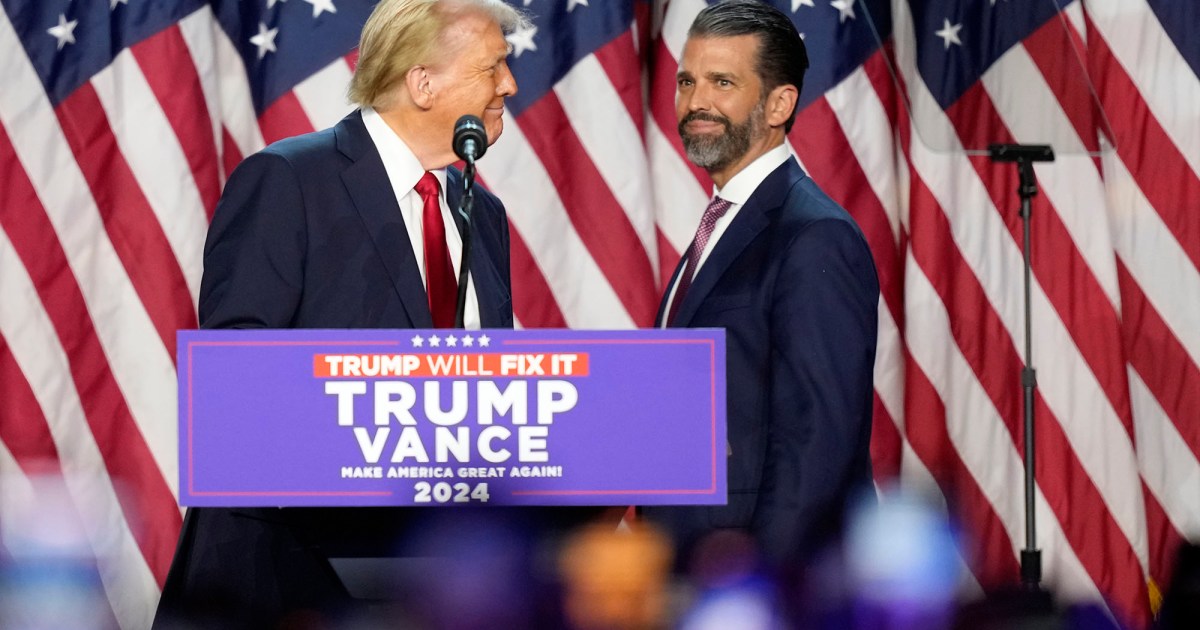
This story was originally published by the Guardian and is reproduced here as part of the Climate Desk collaboration.
The state oil company of the United Arab Emirates, whose CEO will preside over imminent UN climate negotiations, has the largest net-zero-busting expansion plans of any company in the world, according to new data.
Sultan Al Jaber is the chief executive of the Abu Dhabi National Oil Company and president of the Cop28 summit, which begins on November 30. The researchers behind the new data said ADNOC’s huge planned expansion of oil and gas production was a clear conflict of interest and they said his position was “ridiculous.”
At Cop28, nations will attempt to agree to cut fossil fuel use and triple renewable energy. The summit comes at the end of a year in which global temperatures have soared, intense impacts of extreme weather have wrecked lives and there have been repeated warnings that the world already has plans to exploit far more fossil fuel reserves than can safely be burned.
The data is from the Global Oil and Gas Exit List (GOGEL), a public database detailing the activities of more than 1,600 companies representing 95 percent of global production. The data shows that almost all companies are ignoring warnings from climate scientists that new oil and gas fields cannot be developed if global temperature rise is to be kept to the internationally agreed 1.5 C limit. It also shows that:
-
$170 billion has been spent by the industry on exploration for new oil and gas reserves since 2021.
-
96 percent of the 700 companies that explore or develop new oil and gas fields are continuing to do so.
-
More than 1,000 companies are planning new gas pipelines, gas-fired power plants or liquified natural gas (LNG) export terminals.
The UN warned last week that fossil fuel producers were planning expansions that would blow the planet’s carbon budget twice over. Experts called the plans “insanity” and said they “throw humanity’s future into question.”
A long series of scientific studies has concluded that most existing oil, gas and coal reserves need to remain in the ground to tackle the climate emergency but major fossil fuel companies and petrostates have yet to stop exploring for more.
“The magnitude of the industry’s expansion plans is truly frightening,” said Nils Bartsch, head of oil and gas research at the NGO Urgewald, which produces GOGEL along with partners. “To keep 1.5 C alive, a speedy, managed decline in oil and gas production is vital. Instead, oil and gas companies are building a bridge to climate chaos.”
Bartsch criticised the dual role of Al Jaber. “I think it’s ridiculous. I’m not sure how a person that’s responsible for this kind of oil and gas expansion is fit to lead the climate negotiations. It is the most obvious conflict of interest there can be,” he said.
An ADNOC spokesperson said: “The data and assumptions in this report about ADNOC are incorrect and misleading.” The company did not provide its own figure for its planned expansion of oil and gas production.
The spokesperson said: “With a growing global population seeking universal access to energy, all current energy transition scenarios, including by the IEA [International Energy Agency], acknowledge that oil and gas will be needed to meet future energy demand. ADNOC produces some of the world’s least carbon-intensive oil and gas.”
Al Jaber is also the chair of the UAE’s renewables company Masdar and is the nation’s climate envoy. His appointment to run Cop28 has been criticized by politicians and campaigners. Some figures have supported him, including the US climate envoy, John Kerry, and Al Jaber has said his knowledge of the energy business is an advantage. The Cop28 office did not respond to a request for comment.
The GOGEL database is built using information from Rystad, the industry standard data provider. The researchers used the latest net zero scenario from the IEA to calculate the overshoot in each company’s oil and gas expansion plans.
The IEA scenario sets out a feasible path to net zero emissions by 2050 that is consistent with keeping global heating to below 1.5 C. No new oil and gas production can occur after 2023 in this scenario, so plans for production after this date overshoot the scenario. On this basis, ADNOC has the biggest expansion plans that are incompatible with the 1.5 C limit.
Previous analysis, revealed by the Guardian in April, showed ADNOC having the third biggest net-zero-busting plans, after Saudi Aramco and QatarEnergy. That was based on an earlier IEA scenario.
ADNOC has more planned expansion due to be approved after 2023 than other companies and is therefore top in the updated analysis. Politico revealed recently that ADNOC was delaying a competition for drilling leases until after Cop28, according to a leaked internal document.
The other companies in the top three for overshoots of 1.5 C are the National Iranian Oil Company and ExxonMobil.
The IEA’s new 2023 scenario requires a sharper annual fall in oil and gas production than before, and also includes future stranded assets for the first time, i.e. oil and gas facilities that have to be shut down before the end of their economic lifetime in order to meet climate goals.
The companies that spent billions of dollars from 2021 to 2023 on exploration were led by China’s CNPC and CNOOC, followed by Saudi Aramco and Pemex, Mexico’s state-owned oil company.
The GOGEL database also shows companies are planning to increase global LNG export capacity by 162 percent, despite analysis suggesting the fuel may be more polluting than coal. The expansion is led by the US, with 21 new LNG export facilities planned along the Gulf coast accounting for 41 percent of global LNG export expansion. Much of the gas will come from fracking in the Permian Basin.















